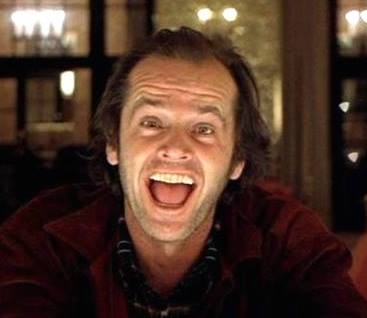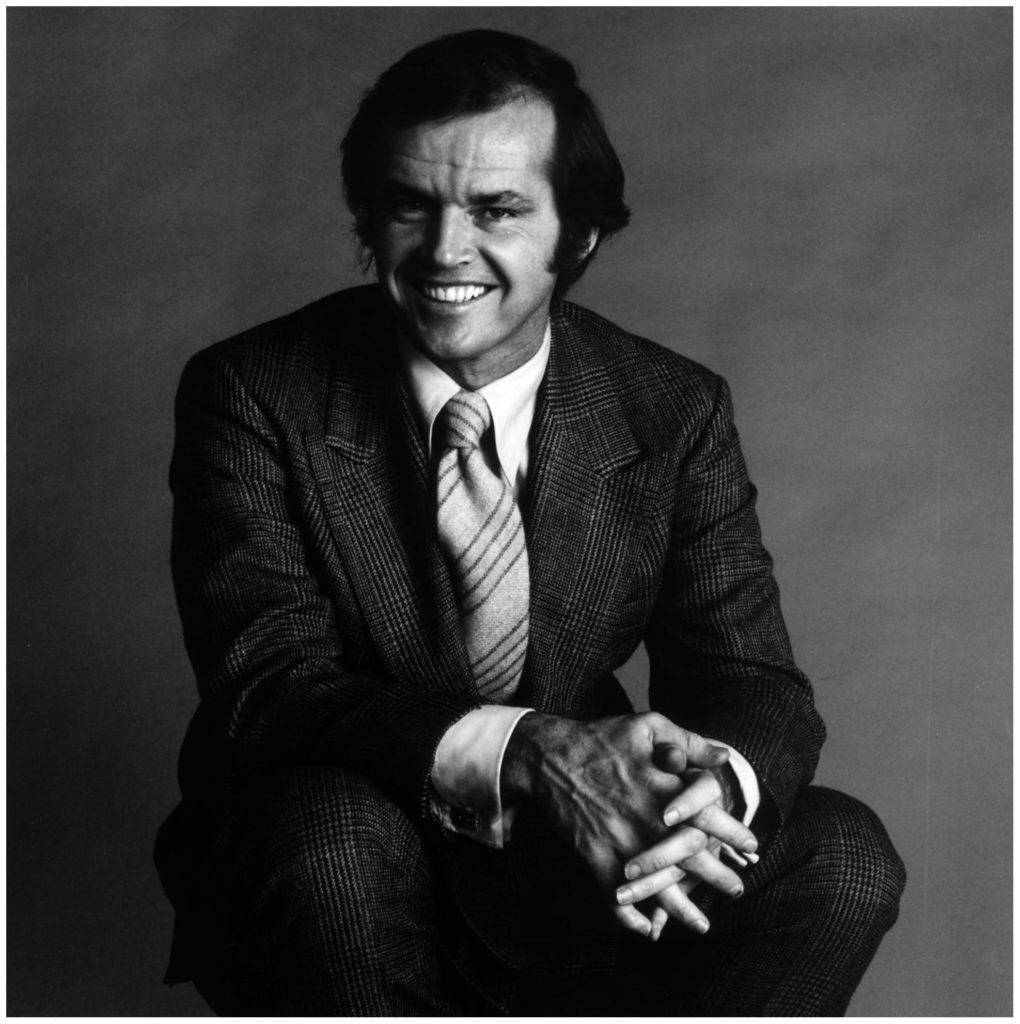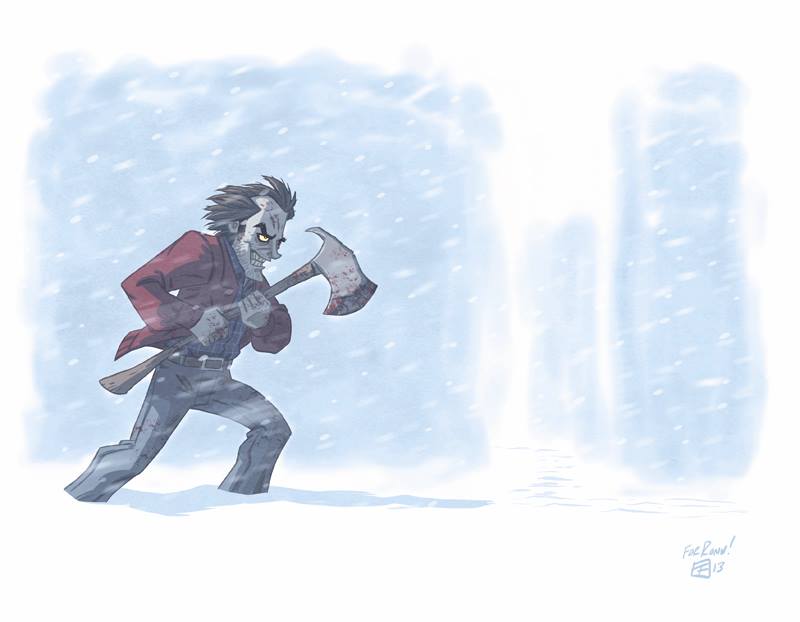51 GREATEST FICTIONAL BAD GUYS
#8. JACK TORRANCE from THE SHINING

Stephen King is without a doubt my favorite author. I know he gets a lot of flack from critics, but most of the comments boil down to “if you’re popular, you’re a hack”. In the end, I couldn’t tell you what makes a good writer; I just know what I respond to.
But equally perplexing are King’s comments on Kubrick’s adaptation. He described it as a “big, beautiful Cadillac with no engine inside it.” I can always understand a creator getting defensive about how his work is used (or misused). I can even see his point in the differences between the Jack Torrance of the novel and Nicholson’s version in the film (I sympathize with the novel’s version). But the film adaptation, as loose as it is with logic and character motivation, does something almost miraculous in this age of modern film. It incites mystery… and an almost religious one at that.
There is something under the hood — I know this because I can feel it humming. To point (and to use King’s example) Tarsem Singh’s THE CELL and Argento’s SUSPIRIA are “beautiful Cadillacs” (both films I adore very much), but they don’t hold the same unquantifiable mystique as THE SHINING.
Each SHINING cultist has his own theory (or theories) on what the film is about. Some are plausible (Native American genocide) while others are just dumb (Kubrick’s confession for his hand in the moon landing). For me, THE SHINING is about the reptilian scorn a father/husband subconsciously holds for his family. Jack Torrance is smart and literate with dreams and ambitions. But his skill set doesn’t equal his ambitions. Left alone, the only thing he produces are hundreds of wasted pages with “all work and no play” written on them. Alcohol and insecurity have seeped inside him without a trace of self-awareness or responsibility. He doesn’t see himself as a failure, so he transfers the blame onto his family (“they’re the ones holding me back.”)

To Jack, expectation, reality and status are all confused. He sees the Overlook — a grand, magnificent place that attracts only the best people — as his rightful home (not the everyday duplex where he resides in Colorado). There, he is an important writer, not a jack-of-all-trades fired from his teaching position (it’s noteworthy we see Wendy doing the lion’s share of caretaking duties as he drifts off into his own daydreams). Likewise, the young, beautiful siren in 237 is someone Jack believes he could have if not for the “sperm bank” he’s shackled to (his marriage is polite and distant, but we never see warmth or intimacy between them). And Danny, his son, is only a constant reminder of his shortcomings: a link to violence, guilt, and mortality.

Almost a mirror to THE SHINING is Jennifer Kent’s THE BABADOOK. The mother in that film, like Jack Torrance, feels the pull between what she has and what she doesn’t. She’s in an emotional rut (which then becomes a spiral) and suffers from stagnant artistic dreams (Torrance can’t seem to kickstart his novel; she used to create children’s books). In both cases, their families are the scapegoat. In both cases, madness is followed by an impulse to murder.
Society expects marriage and parenthood to be a golden experience, like a photograph immortalized forever from a Sears catalog. But every husband, wife, and parent is an individual as well, with years of growth spent creating that personage. Jack Torrance just shows us the worst case scenario for not keeping both sides properly balanced.
Jack: “Mr. Grady, you were the caretaker here.”
Grady: “I’m sorry to differ with you sir, but you are the caretaker. You’ve always been the caretaker. I should know sir. I’ve always been here.”
https://www.youtube.com/watch?v=60WR8dB0H-s

